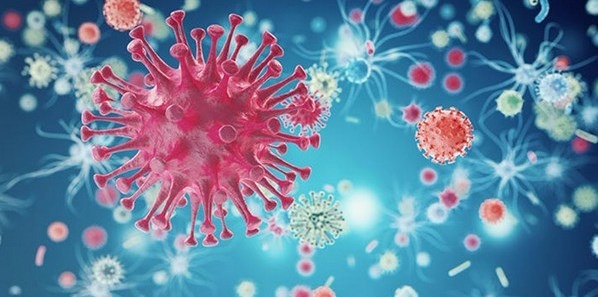How Cannabis Use Strengthens the Immune System in People with HIV/AIDS
Recent studies on the use of cannabis in treating HIV symptoms have shown that patients who currently use or have previously used marijuana have higher concentrations of CD4+ and CD8+ glycoproteins in their bodies compared to those who have never used the plant for recreational or medical purposes. These compounds are types of white blood cells responsible for the body’s immune response to pathogens and toxins.
Study Results
A study conducted by a team of researchers from the University of Virginia, recently published in the journal Drug and Alcohol Dependence Therapy, found a significant difference in the concentration of active leukocytes among HIV patients. According to the authors, the main factor behind this difference is the presence of THC or its metabolites in the patients’ bodies.
“After adjusting for possible external factors and environmental influences, we found that patients with a history of cannabis use (determined through personal interviews and blood tests that detected THC metabolites) had higher concentrations of CD4+ and CD8+ glycoproteins, indicating more active leukocytes, compared to those who had never used marijuana. Specifically, the test results confirm earlier studies that reported increased levels of these glycoproteins in patients who smoke, which may explain a somewhat stronger immune response to the HIV retrovirus. In particular, smoking patients showed a heightened immune response to compounds that trigger HIV symptoms. However, this difference is relatively minor when considering the overall variability of immune response among all patients with this condition. In any case, the experiments demonstrate that, in addition to relieving pain and improving patient well-being, marijuana may also modulate the immune response, potentially reducing the fatality rate of the infection,” the study concludes.
Previous Evidence of Cannabis’s Immunomodulatory Properties
Doctors first noted THC’s ability to boost immune response in HIV patients back in 2011, when Dr. Patricia Molina published the results of her private trials conducted on primates. Dr. Molina’s work gained wider attention in early 2014, when it was formally published in the American journal of HIV/AIDS therapy. Despite medical interest, global media largely ignored her discovery, possibly because THC was already being used to treat symptoms of the disease, particularly for pain relief and to improve appetite and overall well-being in patients.
Nevertheless, Dr. Molina’s findings were noticed by the California branch of the Drug Policy Alliance. Activist Amanda Reiman, writing on the organization’s blog, noted that this information could be “a real breakthrough in AIDS therapy.”
In the experiment, which lasted about 17 months, researchers from the University of Louisiana administered concentrated THC extract twice daily to rhesus macaques aged 4–6 years, infected with a primate-specific form of HIV. Detailed analysis of the subjects’ intestinal tissues showed that THC not only helped heal various wounds and injuries in the digestive tract but also increased the natural resilience of these tissues.
The authors reported that in the monkeys’ intestines, THC triggered a phenomenon known as “microbial translocation.” The first noticeable symptom of HIV’s spread in the human body is damage to the tissues of the intestines and other digestive organs, with intestinal wall cells being particularly affected as the infection progresses. Such damage allows harmful molecules to enter the bloodstream, further worsening the disease.
THC, in turn, activates CB2 receptors in the intestines, enabling rapid repair of dying cell wall sections and preventing structural damage. This helps the body keep pathogens inside the intestines, slowing the spread of infection and reducing the severity of its symptoms.
In simple terms, HIV kills the body’s cells and overloads the immune system, while THC protects and restores them, optimizing and easing the burden on an already weakened immune system.
“Initially, my colleagues and I thought that high concentrations of THC in the body might increase the strain on the body, especially the digestive system. However, our results show that cannabinoids can actually modulate the body’s response to the most dangerous symptoms of the virus,” Dr. Molina concluded in her study.
© www.Herb.co



